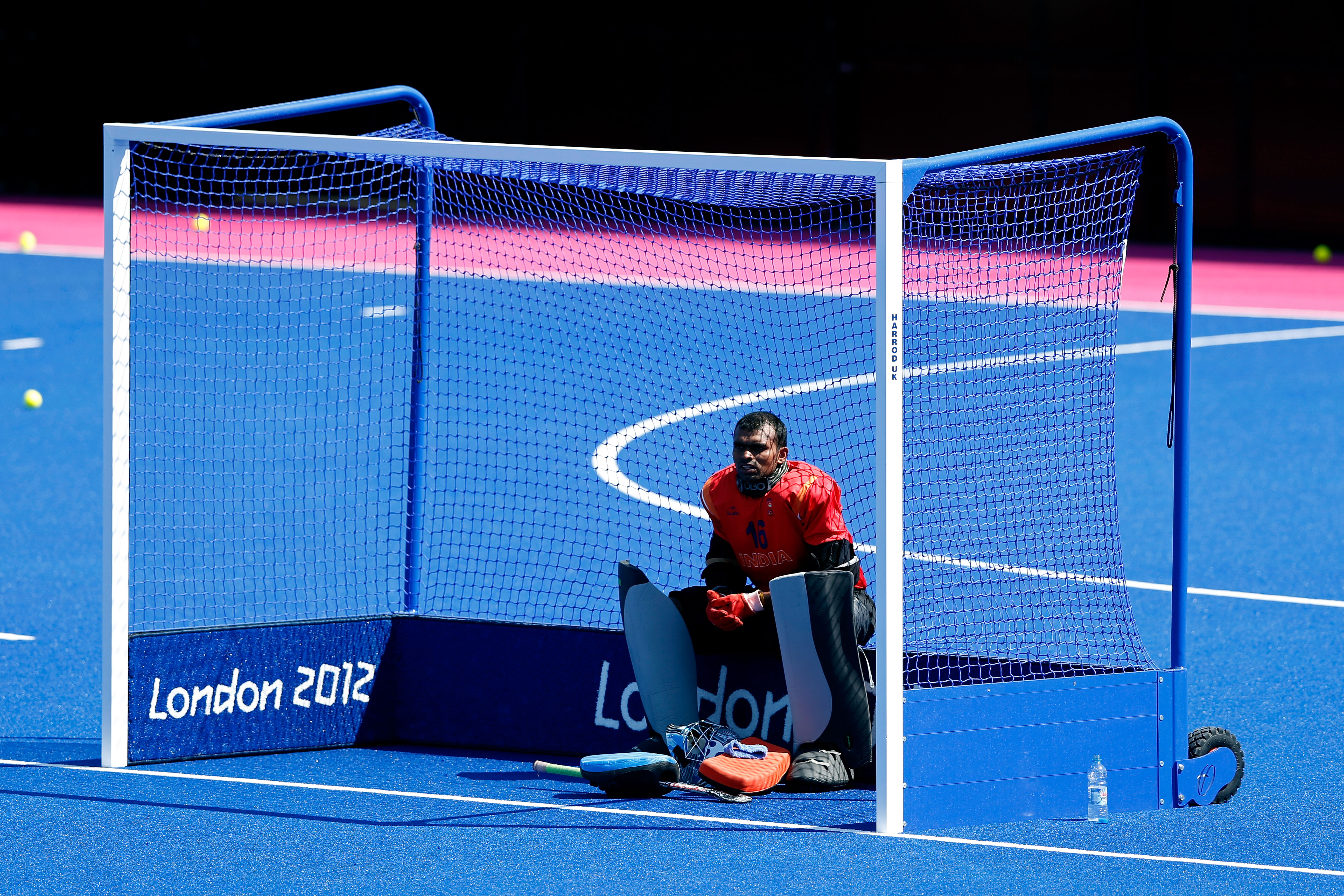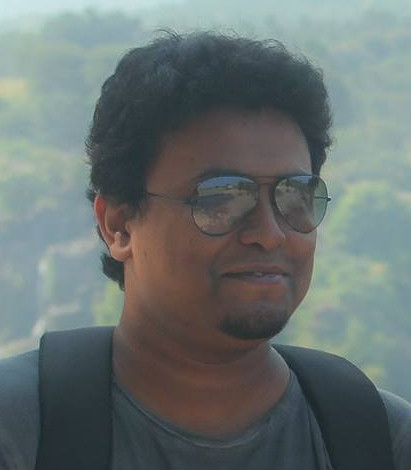PR Sreejesh: Goalkeeping is a thankless job
For most, a Government job is a ticket to a life of security. A life devoid of the strains that the other 90-odd % Indians endure. A cushy job pushing papers. A life without “pressure”.

But for the Indian sportsman, it is the only available path to his dream – financially secure enough that he can finally pursue his passion. While many fall by the wayside and are content with playing in the yearly tournaments as the perks of the job kick in, it was not so for Sreejesh.
Now one of the best goal-keepers in the world, Sreejesh fondly remembers his job offer at IOB that changed the trajectory of his life completely. “When I finished my junior team and when I finished my 12th, I got an offer from Indian Overseas bank, Chennai and I joined there. That turned my life in a different way. From a secured background, I could do anything I want. So when I got the job, I felt, Okay, I am more secured now, so I can concentrate on my career now. So I played whenever I got time,” says Sreejesh.
Earlier in the morning, we had driven a while to get to the SAI complex in Bangalore - it had looked like a dilapidated fortress from without. We had reached the gates of what looked like a college hostel, and Sreejesh was there to meet us. He had none of the self-importance that you would expect from one of the biggest sportsmen in the country.
Sreejesh comes from Kizhakkambalam village in Ernakulam, and that is where he studied until his sixth standard. A recognizable talent even as a kid, he had started out with track & field back then. At 12, he moved to Thiruvananthapuram to join a sports school, and that is where his journey officially began.
When we ask if that early stint in athletics shaped him, Sreejesh says, “Definitely! If you consider, then Athletics and gymnastics are the mother of all sports. So if you have a background in athletics, that will help you in any sports, not only hockey. It helps you gain the basic stamina that is needed as a kid. That is why I advice everyone that when they join school, to not only concentrate on studies, it is important that you concentrate on your sports as well. Because basic fitness is very important in today's lifestyle.
I think think for me that (athletics) was the base. I started my career as an athlete, and that has helped me develop my muscles from the childhood.
Sreejesh
Hockey and Kerala does not sound so familiar. India has traditionally produced its stars from only a handful of states like Punjab, Tamil Nadu and Orissa. Sreejesh smiles and says, “It is because of the culture. If you see Kerala, we are rich with athletes and football players. We even have very good basketball and volleyball players. So the culture in the villages is such that they support these sports, because everyone wants to watch those games, and we have never been into hockey that much”.
The 30-year old adds that he had to move elsewhere to make it big under the circumstances. “I am here because of Tamil Nadu,” he says with gratitude.
“Tamil Nadu have got a very good infrastructure for hockey. They have got a lot of astroturfs, they have got a good gym. The Indian Overseas bank always gave good facilities to their players, and that is how I developed myself. Then when I started to play for the junior team, my bank promoted me. That gave me more inspiration to do well. That kind of support, which I had from my bank and Tamil Nadu, that is what brought me to this level,” he says.

 ©
© That brings about the cannot-do-a-hockey-interview-without-this question - India and astroturf.
Lamenting the lack of adequate infrastructure in the country, Sreejesh says, “The astroturf introduction affected Indian hockey a lot. Not only Indian hockey, the Asian hockey as a whole.
“Earlier, it was like the players started their career on the grass turfs, they learn their hockey on those grass field, and then they played international matches on grass fields, so it was easier for them to perform.
But nowadays, a player starts his career on grass, and then they come to the astroturf—and that is quite difficult. Grass and astroturf is totally different. The strength that you require on astroturf is different than what you need on grass. That is why we are struggling now, because whenever a new player is coming into the team, he is taking one or two years to adapt to the astroturf and give their best. So we are missing out on two years of that quality player".
If you look at Holland, I think they have like 800-900 astroturfs. But when it comes to India, we have like 150-160 astroturfs. That is making a huge difference.
Sreejesh
Sreejesh had spent years under the shadow of experienced hands like Adrian d'Souza and Bharat Chhetri before he burst on to the scene in 2013. He was one of the few older players in a relatively young and inexperienced players back then. After bagging the 'FIH player of the year' award in 2014, Sreejesh has been the bedrock of many an Indian performance – he has single-handedly saved Indian the blushes and taken them through in tournament after tournament.
But who has been his inspiration and role model all through?
“In the junior level, I never followed anyone. But later, I started following Adrian D'Souza. He was a former goalkeeper, and he is like my brother. We played together for almost three years. He was like a role model, a guide, a brother, and a coach for me. I used to copy him, but he told me, 'Sreejesh never try to copy me. Try to develop your own style, and that is going to help you'. That helped me a lot,” says Sreejesh.
Sreejesh has earned respect from teammates and opponents alike. But the custodian was sorely missed when he was rested for the Azlan Shah tournament although India did manage to reach the final. He returned for the Champions trophy and was awarded the captaincy in the absence of Sardar Singh. The faith bestowed was fairly rewarded when he took India to the final where they lost only by a contentious penalty shootout to World Champions Australia despite his heroics.
However, one question has remained in hockey fan's minds for some time - Is the team beginning to be overdependent on him?
Sreejesh gets philosophical when the question is put forward and talks about why there are just not enough goalkeepers around. “Goalkeeping is a position where you need more experience, and you need some crazy people. It is a thankless job. Every time you cannot expect people to come and say that you have done a good job, or you are ok. People are always there to talk against you, even if you concede just one goal. That is how goalkeeping is. Nobody wants to be a goalkeeper, because nobody would recognize you. It took me around 14-15 years to come out of that mask. On the field I always wear a helmet, and people recognized my helmet only.”
He has seen a resurgence in Indian hockey with the current team. India struggled to make the Olympics in 2008, finished last in the 2012 Olympics, but the past year has been tremendous with India finishing with a medal in the FIH Champions league, Azlan Shah tournament, and in the Champions League. After having been part of a glorious revival, what does he hope to do eventually when he retires? Sreejesh asserts he wants to do something for the growth of hockey in his home state.
I feel Kerala is also changing that way regarding hockey. They constructed a new stadium for national games last year and the scenario is changing. People are more willing to take up hockey as their careers. But still it is a struggling factor that we are not having too many job opportunities in Kerala and we do not have too many tournaments to play—these are a couple of things which are negatively affecting the sport. But, I feel like once I finish my career, I can do something for hockey in Kerala.
Sreejesh
It would be a tough time in Indian hockey when the stalwart finally decided to hang his boots. The Indian team has been used to the scene of the familiar six-foot figure of a heavily-padded and barely recognizable Sreejesh. The defence has moved ahead confident with the knowledge that there is a last line of defence that will hold off almost all, if not all, the attacks in case they mess up. But with Sreejesh on the wrong side of 30, it is a matter of a few years before he calls it a day. What happens after that?
“I think now those who are behind me, like Vikas (Dahiya), Harjot (Singh), or Akash (Chitke) they are doing really good. In one or two years, they will be a better goalkeeper than me. So by the time I retire from the game, I think there will better goalkeepers, or the best India has ever produced,” he says.
It is indeed good times when Indian hockey has not just one but three potentials to replace the huge vacuum that will be left by Sreejesh sooner or later. Big shoes to fill!

Comments
Sign up or log in to your account to leave comments and reactions
0 Comments